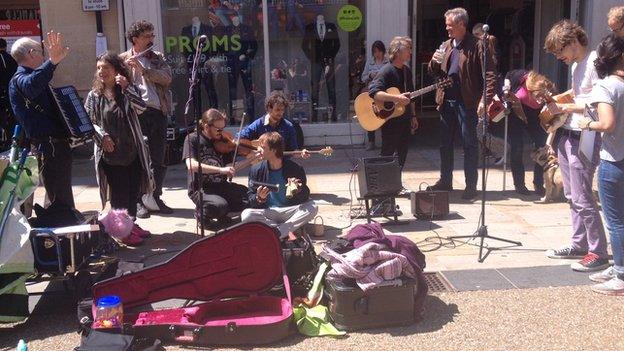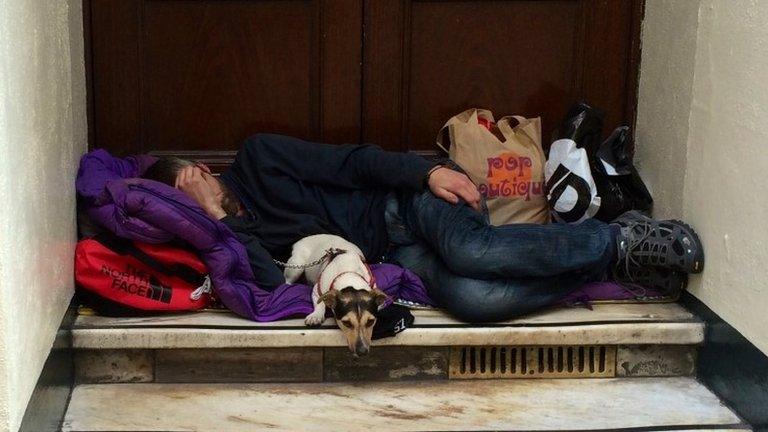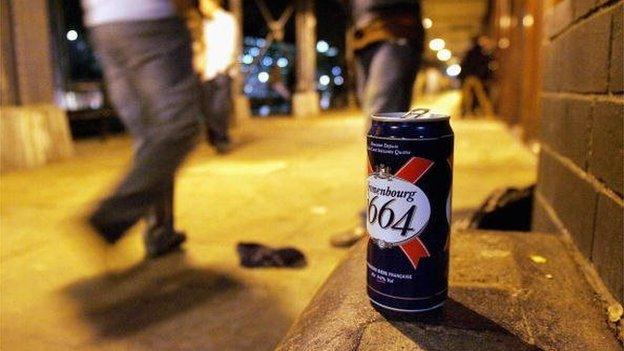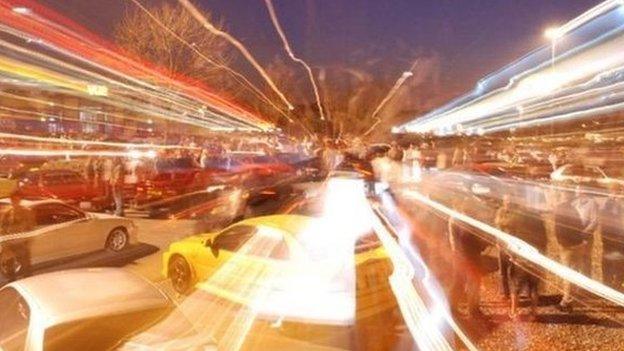Buskers stage protest against Oxford City Council fine and prosecution plans
- Published

Buskers say the proposals are too strict and risk criminalising street performers
Buskers in Oxford have staged a musical protest against proposals they say will "criminalise" the activity.
Plans drawn up by the city council would allow it to issue fines or prosecute those who fail to comply with its code of conduct for street performers.
Musicians at a demonstration on Thursday said the proposals were too strict.
The council has said it "encourages" busking in the city centre.
Performers currently require a free licence to perform in Oxford, and agree to abide by guidelines first drawn up about a decade ago.
The rules, which state music should not be audible from more than 50m (164 ft) away, are not legally enforceable, the council said.
However, if the authority obtains an order under anti-social behaviour legislation introduced last year, fines of £100 could be issued to those deemed to be breaking the code.
If a case is taken to court the penalty could rise to £1,000.

Busking in Oxford: Dos and don'ts
Do
Perform only within designated entertainment areas
Smile, enjoy yourself and entertain others
Entertain only between 10:00 and 20:00
Avoid noisy instruments such as bagpipes, which are not permitted
Don't
Busk for more than one hour in a single place
Make use of street furniture such as lamp posts or railings
Sell CDs or other merchandise
Position yourself in such a way that could be deemed begging, e.g. sitting on or wrapped in a sleeping bag or blanket
Source: Oxford.gov.uk, external

Jonny Walker started a petition, external against the proposals which states the plans could make "street music, art and performance in Oxford a potential criminal offence and subject to strict, arbitrary controls."
He said the plans could do "immense cultural damage" to Oxford and its reputation.
"It is not good for streets that are vibrant and open to the arts so we are asking them to come up with a new code of conduct," he added.
Council leader Bob Price said the code has been reviewed and "compares well" with those in other English cities.
Applications for public spaces protection orders are submitted under the Anti-Social Behaviour, Crime and Policing Act, which enables local authorities to outlaw certain activities.
Critics say the legislation risks creating a "patchwork" of laws, with variations in "acceptable behaviour" from town to town.
- Published19 May 2015

- Published19 May 2015

- Published15 April 2015

- Published1 May 2015
